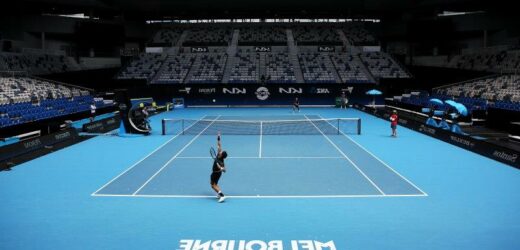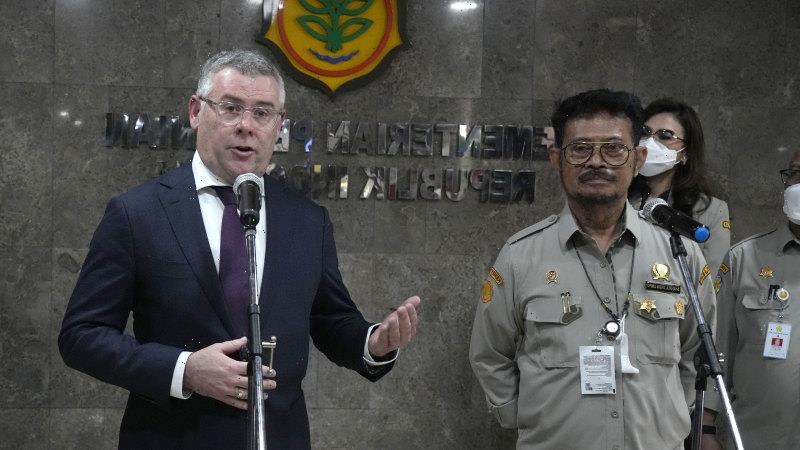The Australian government won’t block Russian and Belarusian tennis players from competing in the Australian Open and other major sporting events but their flags and anthems will be banned under international guidelines signed by the federal sports minister.
Minister Anika Wells has backed an international push to further exile Russia and Belarus from the world sporting community, including by suspending their involvement in sports federations and organising committees.
Australia will allow sporting bodies to decide whether Russian and Belarusian players should compete, but required that they do not do so under their countries’ flags.Credit:Getty Images
A joint statement, signed by Wells and other sports ministers in more than 30 countries on July 6, makes clear that national and international sports organisations can “choose to permit sportspeople from Russia and Belarus to participate in sporting events”.
But the sporting bodies must ensure the athletes and officials are not representing their respective countries, including by banning the use of Russian and Belarusian flags.
Wells said she would be writing to all national sporting organisations this week to alert them to the agreement, which builds on the first international sports statement signed by the Morrison government in March.
“Under this statement the intention and direction of international ministers and myself is clear,” Wells said.
“Where a national sports organisation chooses to permit a sportsperson from Russia or Belarus to participate in a sporting event that it should be made clear that they are not representing those states; that the national anthem, flag and emblems of those states be prohibited, and that public statements are consistent with that approach.”
The requirement around public statements is vague but appears to be targeted at limiting pro-Russian propaganda or displays of support for Russia amid its ongoing war in Ukraine. It requires organisers to take “appropriate steps … to ensure that any public statements made or symbols displayed at sporting events by any athletes, officials and administrators involved” are consistent with the ban on official state representation.
It was signed by more than 30 countries, including the US, UK, Canada, Japan and a European block.
In the earlier March statement, the Morrison government endorsed calls for Russia and Belarus to be stripped of bidding rights for international sports events; for athletes, administrators and teams representing the countries to be banned from competing; and for sponsorship and other financial support from entities with ties to the states to be limited.
Tennis Australia did not respond directly to questions about the statement, including what measures they would take to ensure the Australian Open’s platform wasn’t misused to deliver pro-Russian messages of support.
But in a statement, Tennis Australia said it would “continue to work with government on player participation at events in Australia for the upcoming summer”. It also referred to a joint statement signed by the international governing bodies of tennis in March, which said players from Russia and Belarus would be allowed to compete on tour and at the Grand Slams but not under the name or flag of Russia or Belarus “until further notice”.
The collision of geopolitics and sport came to a head last month when Wimbledon controversially banned Russian and Belarusian players from competing, among them world No.1 men’s player Russian Daniil Medvedev and Belarusian world No.6 Aryna Sabalenka. But the move was opposed by tennis’ top international bodies, the ATP and WTA, which then stripped the tournament of ranking points.
Wimbledon’s organisers, the All England Club, said the decision was made in accordance with guidance from the UK government and to ensure Wimbledon’s platform was not misused to further Russia’s propaganda machine.
The US Open has confirmed it will not follow in Wimbledon’s footsteps, and players from Russia and Belarus will compete in the tournament next month.
Cut through the noise of federal politics with news, views and expert analysis from Jacqueline Maley. Subscribers can sign up to our weekly Inside Politics newsletter here.
Most Viewed in Politics
From our partners
Source: Read Full Article



